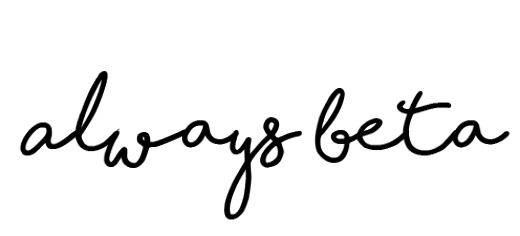Explaining RSS is as difficualt as explaining what a wiki can do. I still know a lot of people who’re still working without RSS. Another CommonCraft Video shows how and why one could work with RSS, but see yourself.
Kategorie: ePedagogy Design
How to use Wikis
The Crew of CommonCraft has developed a Video on how to use Wikis.
The might of Wikis is still underestimated so maybe this video gives you a good idea on how to use a wiki. Have fun!
Work less, achieve more
Working in ePedagogy contexts often means to work online. David Krug put together a list about 5 Ways to Work Less and Get More Done Online. In his opinion the five key points are:
- Restrict your work hours to increase efficiency.
- Create a map for your day.
- Schedule times to check email.
- Relax and don’t try to force yourself to work harder.
- Cut yourself some slack.
To get some more information about these aspects go directly to 901am.
Via BloggingPro
Support of informal learning in adult education by social software
The first step is done. This is a translation of a blogentry I made in my german language blog. It is about my first exam on my way becoming pedagogue. The exam was about social software and how it can support on-the job training. It was based on constructivism. Some sources are listed below, even a lot of them are in german llangauage.
- Podcasting in educational context at medianpedagogy at Uni Augsburg Issue 3 Topic: informal learning (de)
- YouTube: Interview with Heinz von Foerster (de)
- Learning at school (de)
- David W. Livingstone: Informal learning in in knowledgesociety (de) (S. 65 ff.)
- Stefan Mosel: Diploma: self steered learning, Weblogs und constructivism (de)
- Jay Cross: Informal Learning – the other 80%
- Review of Jochen Robes on „Online-Communities – chances for informal learning at work (de).“ Von ZINKE, Gert/ FOGOLIN, Angela (Hrsg.) and „Informal learning and advanced training. New ways of competence development.“ Von WITTWER, Wolfgang/ KIRCHHOF, Steffen (Hrsg.)
- Michael Kerres Blog (de|en)
- Jochen Robes Weiterbildungsblog (de)
- Ameln, Frank von; Konstruktivismus, A. Franke Verlag, Tübingen und Basel, 2004
- Marin Röll “Corporate E-Learning with Weblogs and RSS” in Handbuch E-Learning
You can find more sources in my links.
Happy New Year!
To all my visitors, especially to the ePedagogy fellows a Happy 2007.

Improve your learning
If you ever asked yourself how to improve your learning skills and ever asked yourself how support that e.g. with social software read the article Hacking Knowledge: 77 Ways to Learn Faster, Deeper, and Better at the Online Education Database. Concerning visual knowledge building the point “Visual Aids” might be very interesting.
One hint I like very much is #66 Collaborate.
Blog interaction
Tony is asking in his Blog how peaople are interacting with blogs.
I like this question and I also like to answer. I hope his blog will receive my trackback.
Now his questions:
- Do you only read the RSS feed?
- Do you ever click to the blog post itself (as opposed to the links it provides – which would be on another blog)? If so, why did you click?
- Do you ever leave comments?
- Do you ever read comments? If so, how did you find them?
- Yes, usually I only read the RSS-Feed.
- If I want to write a comment or if I expect more of the post than delivered via RSS.
- Yes, usually I leave comments. If someones articles might be interesting for my readers to or if I want to leave more than a comment I write an article and try to send a trackback.
- I read only comments if they offer more Information or opinions relatet to topics which seem to be very interesting for me
Dear guests, what about your interaction habits concerning blogs? Would you prefer to get only teasers via RSS?
What is ePedagogy?
Owen Kelly, Alexander Tscheulin and me set up 7 first questions to get closer to the answer about “What is ePedagogy?”
1. Definitions: what do we mean by epedagogy?
2. Background: what is the philosophical background to epedagogy?
3. History: what is the cultural and educational history of epedagogy?
4. Current work: what approaches are there to epedgagogy?
5. Tools: what online collaborative tools can we use for epedagogy?
6. Strategies: how can we teach using epedagogical approaches?
7. Assessment: what issues are involved in assessing work in a manner that harmonises with epedagogy approaches?
We agreed already to put some subquestions to this and I will try to write down my ideas in this blog.
Question 5. Tools: what online collaborative tools can we use for epedagogy? for instance could be answered by splitting up into
a) What Kind of LMS do you know.
b) What kind of social Software do you know.
Both, a and b should be devided in Open Source/Free vs. commercial Software.
If you (want to) know more visit ePedagogy.org, contribute your knowledge and see what others wrote there. Or post your suggestions diectly into this blog…
Journal of online education
I found today an free journal which only requires registration.
Innovate is an open access, bimonthly, peer-reviewed online periodical (ISSN 1552-3233) published by the Fischler School of Education and Human Services at Nova Southeastern University. The journal focuses on the creative use of information technology (IT) to enhance educational processes in academic, commercial, and governmental settings. Our basic assumption is that innovative uses of technology in one sector can inform innovative uses of technology in each of the other sectors.
They also have a RSS-Feed.
International Seminar
The past four days I participated in the third international Seminar of ePedagogy Design – Visual Knowledge Building. It was held in Hamburg for the first time and I had been in the group of students who where planning it. (Hey folks it was nice to work with you ;-))
Antti, one of the finnish students stayed at my place and together with him and all the other epedagogy Students I had a great time.
One purpose of this meeting was to form new groups for the upcoming semester-project. Together with Owen and Alex and may be hopefully more people I will work on a wiki concerning ePedagogy. There had been taken been a lot of photos which can be found at flickr.
The documentation of the seminar is available at the Me/We in ePedaogy Design Blog.
Regarding to our trip to the Dialoge in the Dark and the included Boat-Trip and some requests of our guide “Please make a snake” I found this video.

